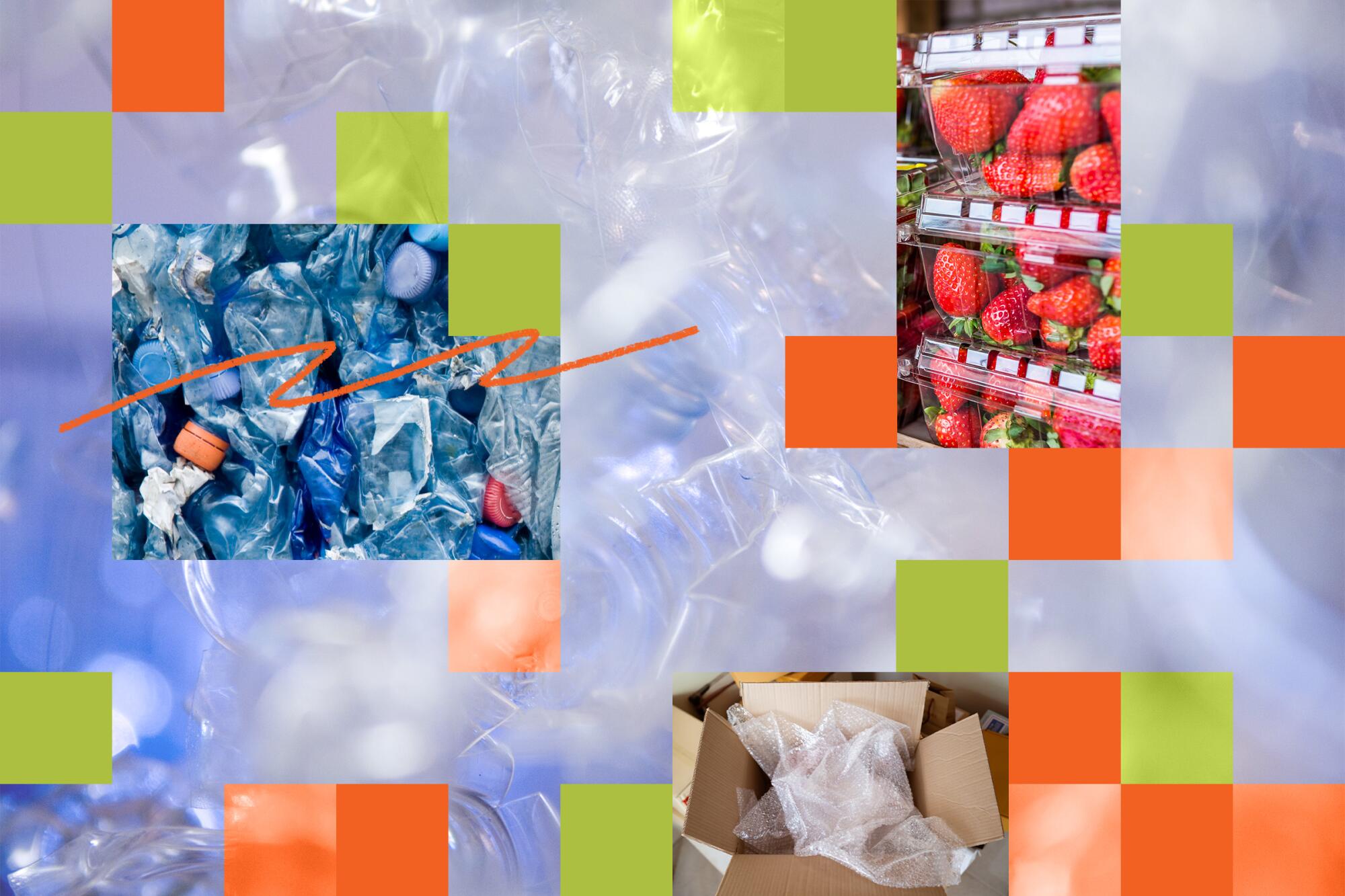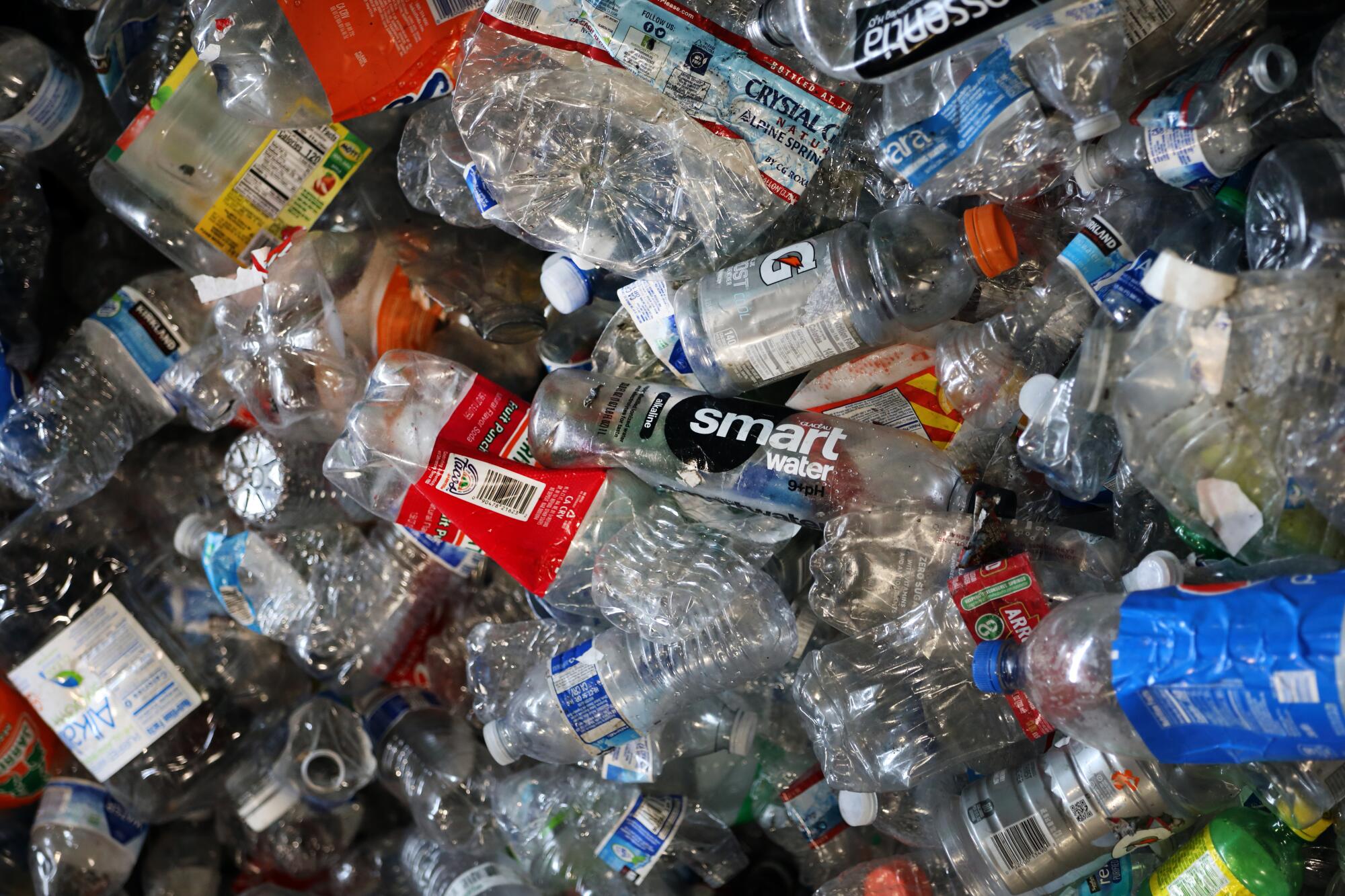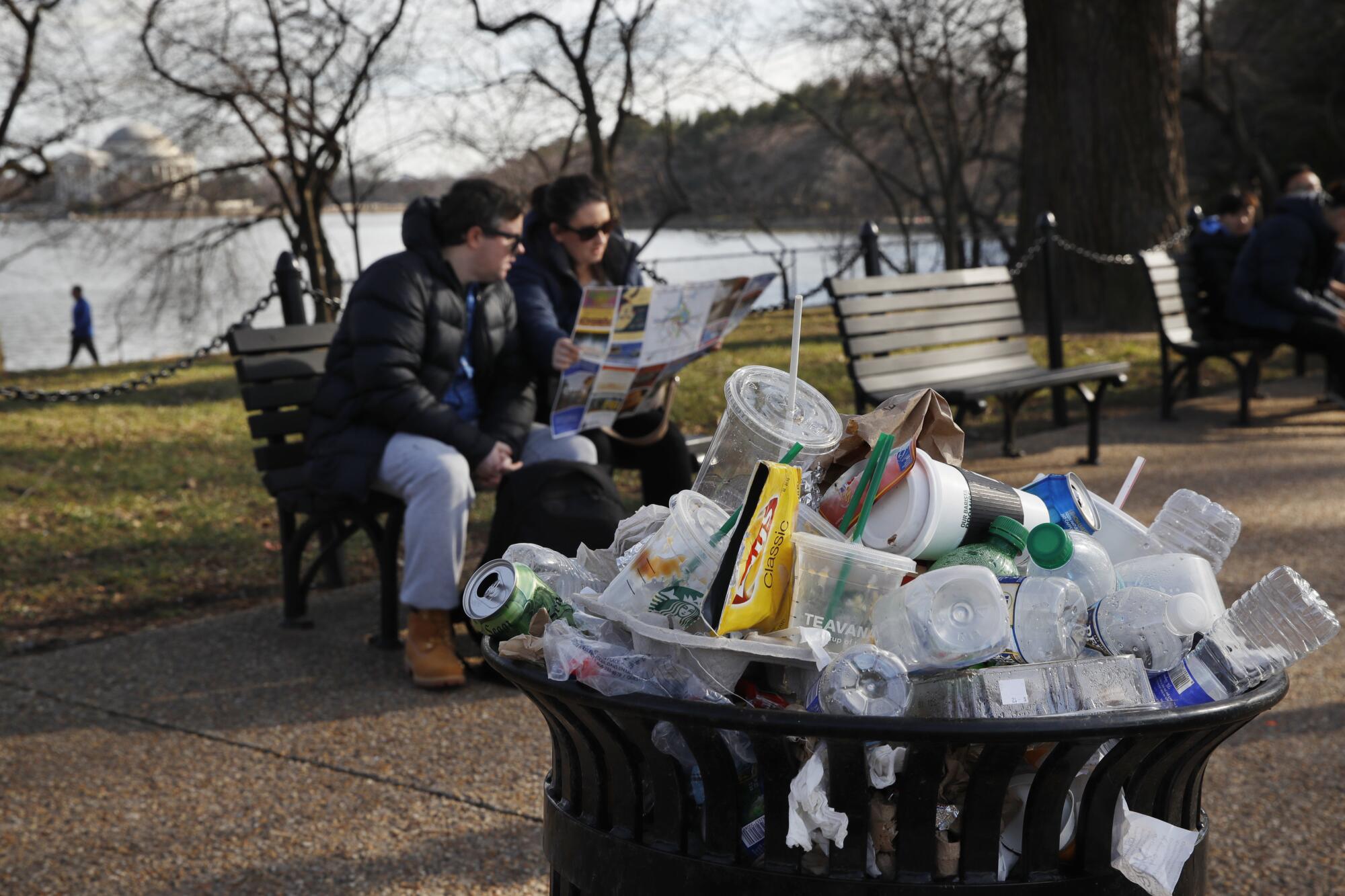
- Share via
WOODSIDE, Calif. — Generation Z has been heralded by some as the “sustainability” generation — more likely to pay a premium for eco-friendly products and more likely to make purchase decisions that incorporate their personal, social and environmental values.
Some studies indicate they’ve scored off the charts when it comes to their concern about the environment. In one global survey done by Kadence, an international marketing firm, 82% of Gen Z respondents expressed concern about the state of the planet and 72% reported to have proactively altered their behavior to diminish their environmental impact. Deloitte’s “2024 Gen Z and Millennial Survey” stated that “many are actively seeking to align their careers and consumer behaviors with their environmental values.”
But the picture is much more complex, as exemplified by a conversation with arguably some of the most passionate and active environmental teens at one Bay Area high school.
Members of Generation Z — those born roughly between 1997 and 2010 — have grown up in a world where information is rampant, and so, too, is convenience. The students at Woodside High School, in a well-to-do area of San Mateo County, know the perils of plastic, and they get grumpy that they can’t avoid it. But they can’t imagine a world without it — and they know they’ve become accustomed, maybe to their own detriment.
“I just use [plastic] excessively, and I’m in the Greens club. I took environmental science, and I still use way too much plastic — like ordering clothes online, ordering from Amazon, food delivery, or going to a store and I need groceries, but half of it’s in plastic and I consciously try not to buy stuff that has plastic, but I inevitably still do,” said Kyla Burfoot, a 2024 Woodside High School graduate, who planned to study cognitive science at UC Berkeley this fall.
Earlier this year, the Greens environmental club met for its weekly get-together in Ann Akey’s Advanced Placement Environmental Science — or APES, as it is called — classroom. The group — represented by eight young women that day — regularly participates in environmental do-gooder activities, such as occasional beach cleanups, but it also strives to educate peers and the community about plastic and recycling.
The club formed a small “watch” committee, for example, whose purpose is to hang around the waste bins at lunchtime and help other students figure out into which of the three waste bins — landfill, recycling and compost — they should toss their trash.

“So, we’d stand there and whenever someone’s about to throw a piece of trash away, we ask them, ‘Hey, do you know which bin to put that in?’ If they do, they get a candy. If they don’t, we teach them,” said Jessica Lin, another 2024 graduate, who was planning to attend UC Berkeley this fall to study clinical psychology and biology.
“And as a student seeing other students reconsidering what they’re throwing away, after we’ve helped and educated them, it’s really powerful. It’s also inspiring because it shows change can happen,” she added.
Unlike in previous generations, environmental literacy has been a part of the Greens’ educational experience since they started school.
“I think our generation is pretty educated in that they are aware there is an environmental crisis happening,” Burfoot said. But, she added, the education is meaningless if people can’t take action on what they have learned and know.
“When I go to the store, I want to buy fresh produce and stuff,” said Kate O’Toole, who was slated to attend New York University this fall to study film and television. “But I can’t do that. I can’t buy a pack of raspberries without also buying the plastic container that it’s in. It’s so difficult to avoid plastic. Even if we try to we can’t ... control what comes in our Amazon package — like all the plastic wrapping or the big, massive box that holds like a tiny little notebook.”
Her comment kicked the group into a discussion about the convenience of plastic in their lives, as well as its omnipresence.
“I think most of us have grown up accustomed” to plastic and plastic waste in the environment, Lin said. “As a kid, my parents would take us to the beach really often. And while I was playing, they’d say, ‘Go over there or to that section because there’s not as much washed up plastic.’ Or my mom would say, ‘OK, let’s pick some of this stuff up.’ I think a lot of us are just used to that. It’s not like it wasn’t there and then it was. It was always there.”
The students say they never knew a world in which the plants, grass and soil along the highways weren’t covered with plastic. Or an ocean in which animals weren’t choking and dying from plastic.
They also don’t know a world where you can’t order something from Amazon and have it appear at your doorstep the very next day. Try scrolling through TikTok Shop, Lin said. It’s “addictive enough, on its own. But then there are these ads where you can buy something super-cheap and it’ll come straight to your door.”

Indeed, price and convenience weigh heavily on the minds of many young consumers. A report from McKenzie & Co. states that, according to a recent survey, “the current cost-of-living crisis (that big inflation beast just won’t quit) is eroding Gen Z’s willingness to purchase sustainable products,” which “often carry a price premium.”
Of course, such reports don’t address the fact that while people born into privilege may have the opportunity to make such decisions, there are many who don’t — and more often than not, these are the people most likely to feel and be hurt by the effects of a changing climate. Research has repeatedly shown that marginalized groups are more heavily affected by heat waves, extreme weather events, wildfire, labor disruption and environmental degradation.
Lin acknowledges some of the challenges of being a consumer in 2024. “I think the convenience is powerful, and people kid themselves that when those items arrive in plastic they can recycle it. But they actually can’t. But they tell themselves they can, and drop it in the recycling bin and move along,” she said.
Burfoot agreed and said that’s one of the things that her generation has also perfected: disassociation.
“We know plastic is bad. When given a choice, we try to find nonplastic options,” she said. But they also can’t shake the instant gratification of Amazon and TikTok.
Corporations and politicians, the Greens say, are going to have to work a lot harder. “I mean, no matter how many of us go vegan, or stopped eating beef, there’s still like millions of pieces of trash being dumped into the oceans by corporations,” Burfoot said.
“In the end, it’s the convenience that keeps it around, but pretty soon, we’re going to recognize how inconvenient it actually is,” Burfoot said. “In 20 years, when we’re all literally part plastic ourselves,” people may start to reconsider.
And Burfoot and her classmates put the blame entirely on the older generations.
“I’m growing up in this world that I didn’t create, and I feel like there’s some disparity — like the older generations are hoping we’ll figure it out, but I think it’s on them to close this gap and do their part in making this world livable for us in the future and for our kids,” she said.
And governments need to provide people with the ability to choose alternative ways of living that don’t include all that plastic, several of the Greens said.
“I think there are ideas out there that are really good for sustainability,” Lin said. “But they’re not always attainable in our society and in this economic environment. Living sustainably costs money and it shouldn’t.”
Maybe, they said, if chief executives and government officials had to sort through all the trash themselves — and see all the useless waste from single-use Starbucks cups or energy shots — they’d get a better understanding.
“If you’re empathetic and if you’re sympathetic, you’ll put yourself in other people’s shoes and also put yourself in the shoes of your kids and grandkids,” Lin said. “You have to think in different shoes.”






